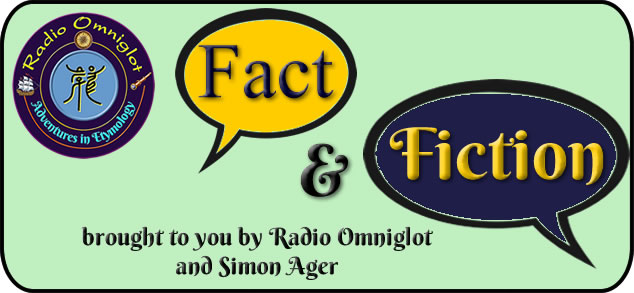Podcast: Play in new window | Download
In this Adventure in Etymology, we find what the word code has to do with books and trees.

Meanings of code [kəʊd / koʊd] include:
- A short textual designation, often with little relation to the item it represents.
- A body of law, sanctioned by legislation.
- Any system of principles, rules or regulations relating to one subject.
- A message represented by rules intended to conceal its meaning.
- Instructions for a computer.
It comes from Middle English code (a system of law), from Old French code (a system of law), from Latin cōdex (tree trunk; book, notebook), from caudex (tree trunk, block of woord, book), possibly from cūdō (I beat, strike), from PIE *kewh₂- (to hit, strike, forge) [source].
Words from the same roots include codex, codicil (an addition or supplement modifying any official document) in English, código (code) in Spanish, code (code) in French, kodex (code [of laws]) in Czech, and kütük (log [tree/computer], official register) in Turkish [source].
In Latin, caudex originally meant a tree trunk or block of wood. Later it came to refer to the wax tablets Romans used for writing on. From about the 1st Century AD/CE, scrolls were gradually replaced by codices, books made of stacks of paper bound together along one edge. The word cōdex was used to refer to such books [source].
In English, the word codex refers to an early manuscript book, that is, one bound by joining pages, as opposed to a rolled scroll. Specifically, it refers to hand-writing books made using parchment, vellum or papyrus rather than paper. It can also mean an official list of medicines and medicinal ingredients. [source].
If you would like to support this podcast, you can make a donation via PayPal or Patreon, or contribute to Omniglot in other ways.
Radio Omniglot podcasts are brought to you in association with Blubrry Podcast Hosting, a great place to host your podcasts. Get your first month free with the promo code omniglot.
I also write about words, etymology and other language-related topics on the Omniglot Blog, and I explore etymological connections between Celtic languages on the Celtiadur blog.












